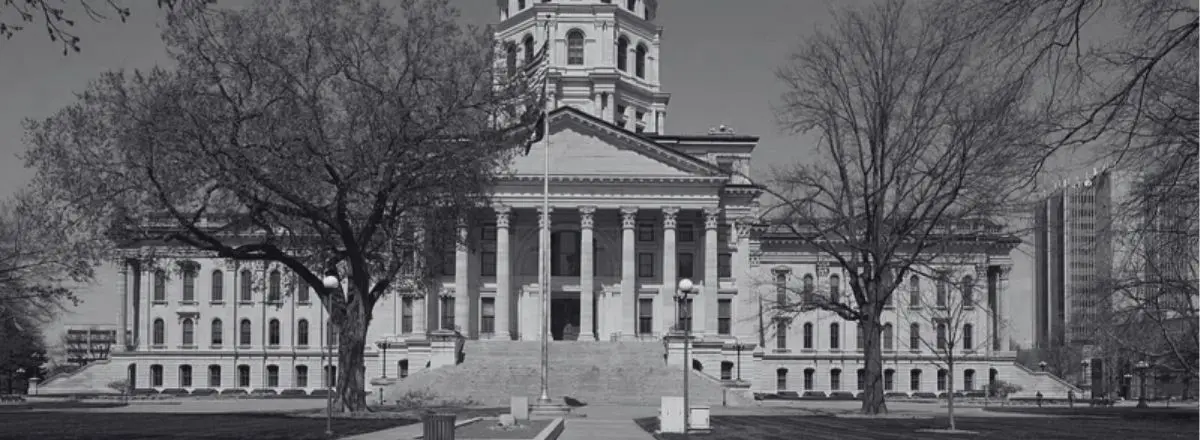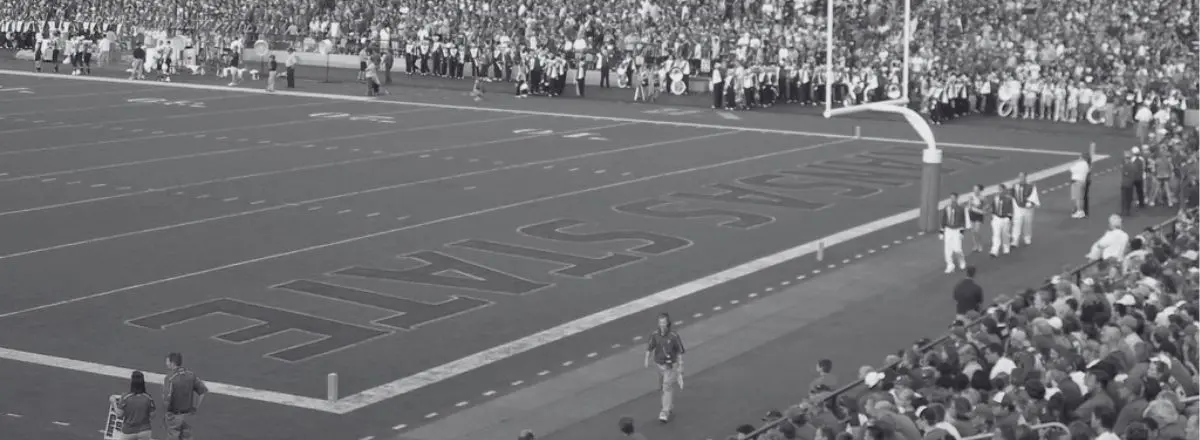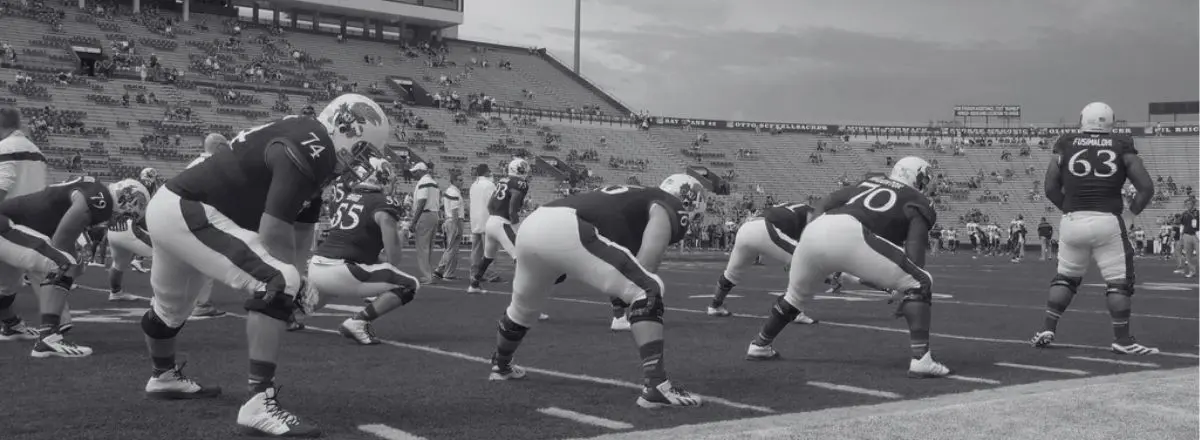The Kansas sports betting market is potentially heading for trouble in a fairly short amount of time. Could raising the tax rate for online sportsbooks help solve it?
That is the question many are asking following a somewhat shocking, possibly problematic development this past spring.
Back in April, the House of Representatives approved a budget amendment that effectively prohibits the Kansas Lottery, which oversees sports betting, from extending the licensing of its six sportsbooks. As the provision reads, the department is not allowed to “negotiate or enter into any contract or extension or renewal of an existing contract for the management of sports wagering with any lottery gaming facility manager.”
Immediately, this is not too much of an issue. None of the operators offering sports betting in Kansas will see their licenses expire before 2027. They are permitted to go about business as usual in the meantime. Still, the 2027 calendar year is not that far off. Industries like to have their futures mapped out well in advance. If this budget amendment never received approval, extension talks likely would begin at the end of this year. At the very latest, they will start to open next year. And these cutoffs are imminent. Something needs to be done soon. Otherwise, the Kansas sports betting market could run into some serious uncertainty.
Why Did the House of Representatives Pass This Kansas Sports Betting Budget Amendment
Before we delve into the potential impact of raising Kansas sports betting taxes, we must first tackle an equally important question: Why is the House traveling down this path at all?
The answer is multifold. We will not get into all of the reasons here. That’s an in-depth discussion for another day. Basically, though, going this direction retakes control of the sports betting process.
Right now, the Kansas State Lottery oversees sports betting operations. Policymakers in the House (and Senate) are not thrilled with the terms of the current Kansas sports betting licenses. Among other things, they want to see a higher tax rate. There were also previously concerns about the number of promotional write-offs Kansas online sportsbooks were allowed to deduct from their filings each year.
Beyond all of that, this budget amendment puts pressure on the lottery and licensed sportsbooks. No one involved will want to see their licenses lapse. Kansas may not be the most lucrative market, but it is among the more profitable places for online sports betting in the United States.
Here is Why Kansas Should Consider Pivoting to a Simpler Tax Hike
This brings us to a prospective tax hike. The current rate for Kansas online sportsbooks. That is among the lower ones in the country. If the goal is to generate more revenue, increasing that rate to 20 percent or more would do just that.
Indeed, doubling or even tripling the tax seems dramatic. Sportsbooks in Kansas will clearly fight it, too. But this kind of increase is hardly unprecedented. As Doug Bonjour writes for Casino Beats:
“Lobbyists have suggested that a less radical change may include raising the state’s sports betting tax. The current rate of 10 percent is one of the lowest in the United States. Such a move would not be unprecedented. Ohio doubled its rate from 10 percent to 20 percent, while Illinois implemented a tier-based scale ranging from 20 percent to 40 percent. Meanwhile, a state lawmaker has proposed hiking Massachusetts’ rate to 51 percent, which, if implemented, would be the joint highest in the country, along with New York and Rhode Island.”
Some experts believe strongly in the tier-based model now being used for sports betting in Illinois. The structure is somewhat complicated, but in a nutshell, the more grossing gaming revenue sportsbooks generate, the higher their tax rate. Many argue this is the fairest distribution in the USA. Bigger sportsbooks, they say, can afford to shell out extra cash. Meanwhile, smaller operations will be incentivized to try entering the market if they aren’t held to the same tax rate as larger, more established companies.
This is, without question, simpler than the state trying to take the reins from the Kansas Lottery and potentially consolidating the number of available sportsbooks. But it does have downsides.
Raising the Kansas Sports Betting Tax is Not Necessarily a Cure-All
As we have seen in Massachusetts and Illinois, there will be consequences to a proposed tax hike. Sportsbooks in Massachusetts are vociferously fighting against the tax increase. And in Illinois, where the tax tiers are already in place, sportsbooks have responded by passing along additional expenses to the consumer.
In some ways, then, a tax hike could undermine the Kansas sports betting market. At the same time, it should be easier to find a happier medium. Raising the tax to 20, 25 or 30 percent is unlikely to draw the ire of operators. It is when you start getting into the 35, 40 or even 50 percent territory that even more forceful push back begins.
Still, none of this ultimately matters if the state legislature is after control over regulation more than money. The true intention of this amendment seems to be maximizing the market’s earning potential. However, the notion of winnowing down the number of operators is raising eyebrows. It suggests money isn’t the only thing lawmakers are after.
Of course, there’s only one way to find out: by actually proposing a Kansas sports betting tax increase. Then, everyone involved can see what happens from there. Either way, though, the clock is ticking.
Take a look at this list of the top online sportsbooks so you can find one that works for all of your sports betting needs:
-
 100% up to $400 + 50 Free SpinsPlay Now
100% up to $400 + 50 Free SpinsPlay NowT&C apply, 18+, Play responsibly
-
 50% bonus up to $250Play Now
50% bonus up to $250Play NowT&C apply, 18+, Play responsibly
-
 50% up to $500Play Now
50% up to $500Play NowT&C apply, 18+, Play responsibly
-
EXCLUSIVE BONUS
 225% up to $3,625Play Now
225% up to $3,625Play NowT&C apply, 18+, Play responsibly
-
 $500 Sign Up BonusPlay Now
$500 Sign Up BonusPlay NowT&C apply, 18+, Play responsibly












